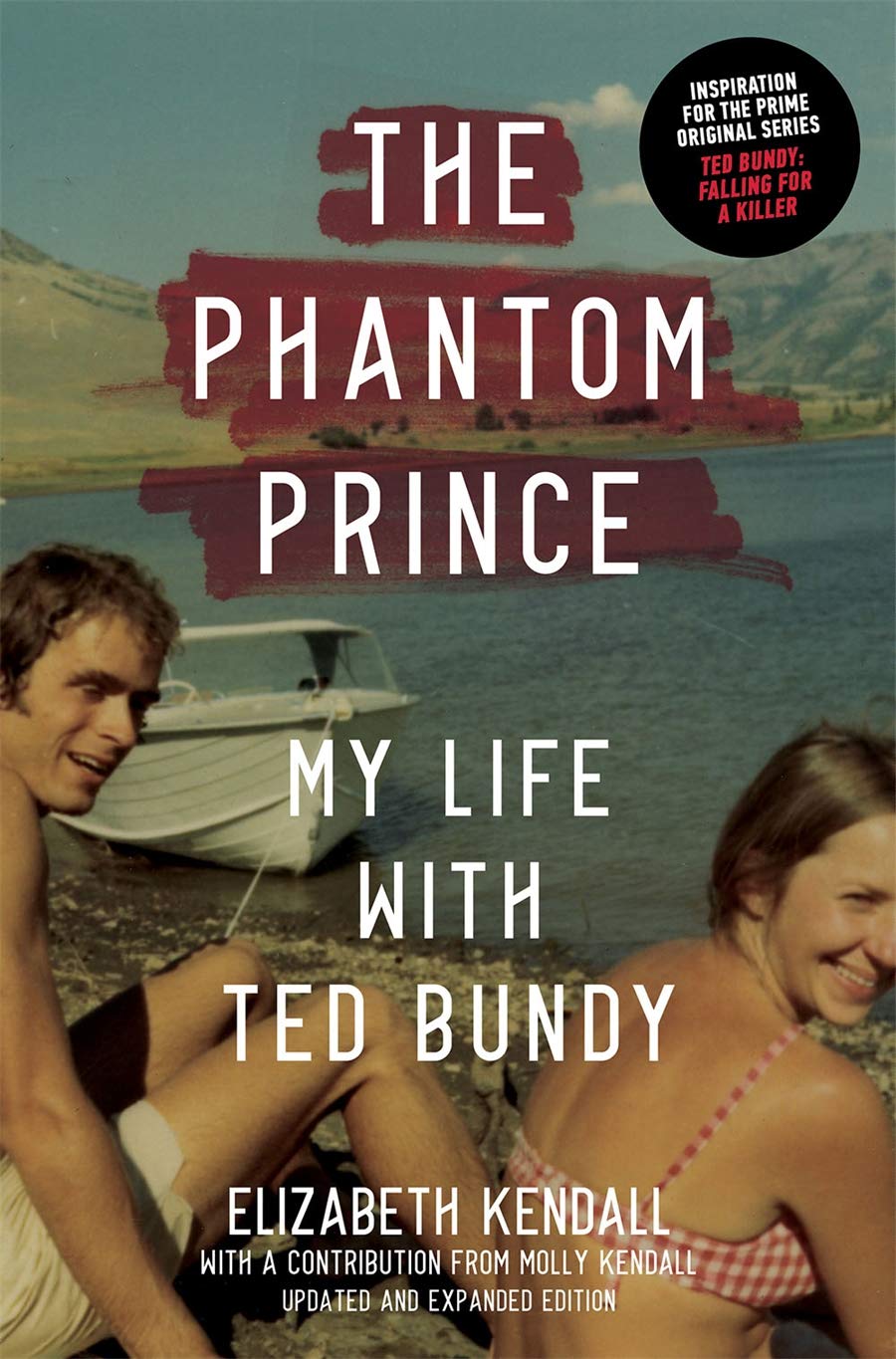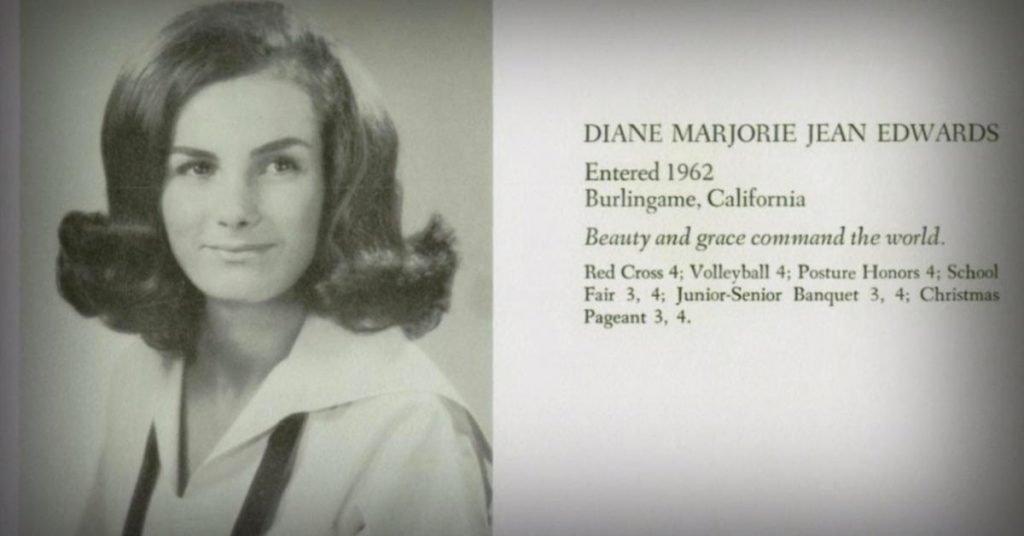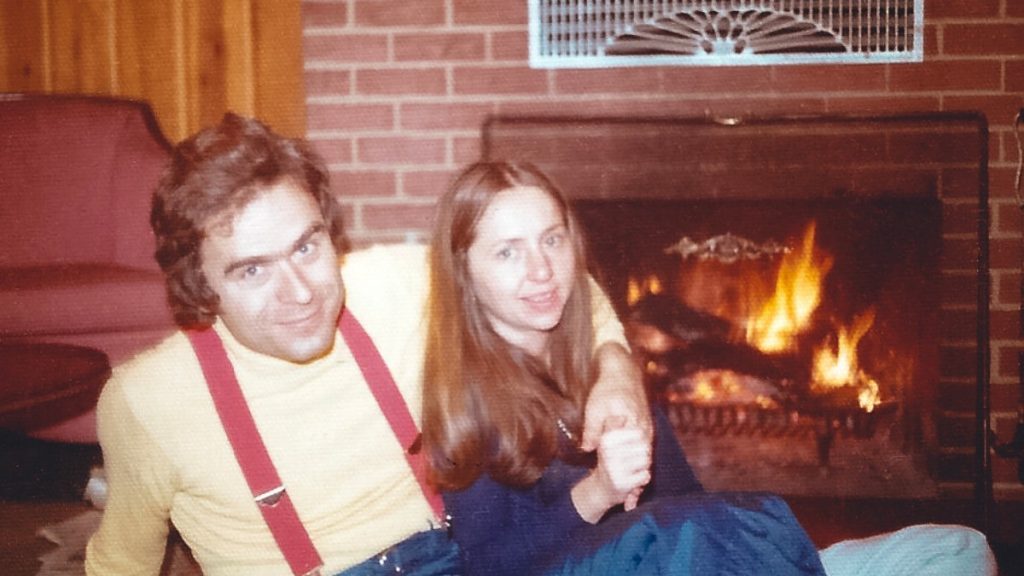
True Crime Studies: Another side of Ted Bundy is shown in Elizabeth Kendall’s ‘The Phantom Prince.’
Most people can’t fathom the idea that their significant other might harbor a dark secret. You live with your spouse, eat with them, sleep beside them, you share your life with them. It seems impossible that they could hide something so big from you. Most people have a secret or two but there are some so dreadful in nature that even entertaining their possibility feels like a cloud of darkness eclipsing an entire household and that’s why when someone such as Ted Bundy emerges, their usually unsuspecting partner gets the brunt of the “how could you not know?” questions. They become a target of blame because they didn’t stop the monster sooner, exactly how a lot of people once viewed Elizabeth Kendall.
Elizabeth Kendall, real name Elizabeth Kloepfer, was Ted Bundy’s longtime girlfriend whom he was dating and practically living with during the bulk of his murders between 1974 to 1978. He murdered young women and then would come home to have dinner with her and her young daughter Molly, putting on that charming façade he was best known for.
Despite the public perception of Kendall being some innocent, naive moron who had no idea her boyfriend was a serial killer, she actually did have a hand in turning him in or at least raising suspicions against him. She reported him to the police hotline at least twice, gave multiple statements back when the police had him prematurely cleared, and actively cooperated with their requests. All while she was still dating him.
No one gives her credit for this though because, in the end, she was still standing beside him in court, choosing to love him rather than brokenly believing the truth. She wasn’t the only one who felt this way. Everyone who knew Bundy was shocked by the accusations. They couldn’t believe someone so intelligent, charming, and “handsome” could do such heinous things. So no, Kendall was not a starry-eyed moron who alone fell for one man’s tricks, but if she has one major personality flaw it’s that she’s incredibly indecisive.
The Obsession with Bundy
Let me say a few things about Mr. Theodore Bundy. Stop obsessing over the way he looked, and stop being shocked about his charm. He wasn’t the only charming motherf***er with a knife but unlike him, the likes of Ramirez, Manson, Shobhraj, Maeue, and Knowles all had at least one noticeable character flaw that allowed the public to believe in their accusations whether it was being a drug addict with rotten teeth or being a hippie with a cult. There is a persistent obsession with Bundy’s physical appearance and higher education that highlights our ridiculous assumptions when it comes to the Hollywood engrained perception of “good vs evil.” It’s not his crimes most people talk about, but how he didn’t fit the mold. Killers are not masked goons stalking the night, living on the streets, or slum houses with grotesque features and facial scars. They’re also not the embodiments of Satan as the press likes to present them.
Bundy was a psychopath, plain and simple. A psychopath that suffered from an inferiority complex. Two very real traits that when put together happen to make for a bad, angry combination. And if your under the notion that he was like Stu Macher and had no motive for his crimes, I advise you to look more closely at his victims.

Bundy’s targets each represented former girlfriend Diane Edwards, a woman he dated in college who dumped him for being, in her own words, “pitifully weak.” Matching her physical characteristics with softer and more inverted personalities, he murdered women in place of her. In a blunt analysis, Ted Bundy was a pathetic egotistical man who murdered in an attempt to overcompensate for the dominance he lacked on an emotional and intellectual level.
Even if it’s not the basis for the book, all this is shown further in Kendall’s memoir, The Phantom Prince: My Life with Ted Bundy. Although it might not have been her intentions, Kendall’s words smooth some of the edges that was Theodore Bundy. She describes him not as a monster, but as a man, an extremely vulnerable and unpredictable man that wrote annoying love letters and cried in her lap when he found out he was illegitimate. All his fears and doubts are put out on display as Kendall almost twiddles down this hellish beast into something made of flesh and bone, something insignificant. It’s actually a powerful thing because in humanizing Bundy, she’s almost stripped him of his power.

Elizabeth’s Story
The Phantom Prince was originally published in 1981, just one year after Bundy received his third death sentence, and ironically, was the same year Carole Ann Boone gave birth to his first and only child. Knowing he probably read this while on Death Row actually makes me laugh because I’m sure he just loved to hear about how many times he got on his knees and begged Kendall not to break up with him.
There are at least two editions of this book. The 1981 original and the updated edition republished on January 7, 2020. They offer different endings and introductions as the republished edition contains an afterthought Kendall added after gaining different perspectives over the years. The updated edition comes with photos and a special chapter written by Kendall’s daughter Molly who details her own memories of Bundy. The book is largely Kendall defending herself against the public. She describes the love she felt for the killer, as well as the all-consuming guilt she felt once she started to suspect him of the horrible crimes occurring on college campuses. It’s a compelling statement of emotional defense because as much as The Phantom Prince is Kendall explaining herself, it is also a long personal note to herself about coming to terms with what happened.
“It took years of work for me to accept who he was and what he had done. I still felt lingering shame that I had loved Ted Bundy. It was healing for me when women started telling their stories of sexual violence and assault as part of the #MeToo movement. I could relate to keeping experiences secret for fear of being judged.”
The Phantom Prince
The book starts a little before the year 1969 when the couple meets and then patiently runs throughout the course of their relationship. Kendall recounts memories she clearly ran over a thousand times in her mind during times of loneliness and confusion, detailing how she met and fell in love with who she thought was a soon-to-be successful lawyer. A man far out of her league. She describes him like a high school jock in a John Hughes movie who magically falls in love with the introverted nerdy girl. A jock that peaked senior year and loses nerdy girl well before she succeeds in post-graduation life.
This becomes the spine of her story, their back-and-forth turbulent romance that builds towards the breaking of the author. The actual crimes are not covered in depth because everything told in The Phantom Prince are things that Kendall herself was actively involved in. It covers her thoughts and feelings only, so while the murders are largely absent, we learn what she was feeling every time a new girl went missing and we see parts of the investigation that aren’t often shown.
There were a few moments that made me want to throw the book out the window. Points when I wanted to throttle Kendall for the amount of worship she gave a man who, even based on her own personal accounts, never seemed like much of a catch. Everything this guy did screamed, “give me attention!! Tell me I’m smart, I’m the smartest man in the world, right? Say right!” No, Teddy, the answer is no, but love is blind so I guess she disagreed. That line from American Beauty could’ve been his motto: “I don’t think that there’s anything worse than being ordinary.”
Verdict
This book is actually a good companion read to the Netflix documentary series, The Ted Bundy Tapes. I would recommend reading The Phantom Prince after watching the four-episode series as it not only fills in some of the blanks but it also shows the other side of his personal life, a behind-the-scenes look. The book, even though it was written long before the series came out, almost plays off against the information revealed in the series as if Kendall is watching with you, commenting on what’s being shared with the audience.
The Phantom Prince is an interesting side to the Ted Bundy story, one that sheds some light on a figure who has often been brushed aside despite earning her place in true crime history. The book would be enjoyed by anyone interested in Bundy, and anyone else for that matter since it comes off as a sad soap opera with a slow mystery unfolding.
 (4 / 5)
(4 / 5)
Book Reviews
A Stellar Debut Novel, We Used To Live Here
Imagine this. You’re home alone, waiting for your partner to return, when you hear a knock on your door. You answer it to see a family of five, bundled up against the cold. The father, a kindly older gentleman, explains that he used to live in this house as a boy. And he would love to show it to his family.
Do not let them in.
The story
Released in June 2024, We Used To Live Here is author Marcus Kliewer’s debut novel. It tells the story of Eve, who just purchased a beautiful house with her partner, Charlie. Their plan is to flip the house and sell it.
One night, while waiting for Charlie to come home, Eve is surprised by a knock at the door. It’s a man named Thomas Faust and his family.
Thomas explains that he grew up in the house and hasn’t been in the area in years. Would Eve let them in so that he can show the home to his children?
Against her better judgment, Eve lets them in. She regrets this almost at once when Thomas’s daughter vanishes somewhere into the house.
What worked
I always appreciate a book that allows you to play along with the mystery. And this book does that better than just about any other I’ve seen.
Pay close attention to the chapters, to the words that aren’t there. To everything about this novel.
This is mostly down to Kliewer. This is ultimately his work of art. But the production value is also fantastic. I don’t want to ruin the multiple mysteries, so I’ll just say this. There are clues in this book that require some specific artistic choices in the page layouts in this book. And I loved that.
If you’d like to experience another horror book review, check out this one.
We Used To Live Here is also the kind of story that makes you question everything right along with the main character, Eve. Eve is a great main character. But she might be an unreliable narrator. She might be experiencing every single horror described, exactly as it’s described. Or, she might be having a psychotic breakdown. Through most of the book, we can’t be sure. And that is so much fun.
Finally, the weather plays a large part in this story. There are several stories in which the weather or the land itself could be considered a character. Even an antagonist. This is certainly one. The winter storm is the thing that traps the family in the house with Eve. It also makes escaping the home difficult. Reading this book during the winter was especially impactful. Most of us know what it feels like to be shut in by a storm. I’ve personally lived through some of those storms that are just referred to by their year, as though they were impactful enough to claim the whole 365 days for themself. And that was with people I liked. Imagine what it would feel like with strangers. It’s a staggering thought and one that we explore in depth in this book.
In the end, We Used To Live Here is a fantastic book. It’s the sort of story that sneaks into your brain and puts down roots. And if this is just the first book we’re getting from Kliewer, I can’t wait to see what else he comes up with.
 (5 / 5)
(5 / 5)
Book Reviews
Exploring real terror with The House of My Mother
As a disclaimer, this is a review of The House of My Mother from a critical perspective. I will not be discussing my opinions of the legal case against Ruby Franke and Jody Hildebrandt. I will be discussing the merits of the book as a work of true crime alone.
In 2015, Ruby Franke started a YouTube channel called 8 Passengers. In August of 2023, Franke and her business associate Jodi Hildebrandt were arrested for, and later plead guilty to, charges of aggravated child abuse. And in January of this year, Shari Franke told her story in The House of My Mother.
The story
The House of My Mother is the true story of Shari Franke, the oldest child of one of the most famous family vlogger families.
As a child, Shari came to the conclusion that her mother didn’t like her. Soon, she began to fear her mother’s anger.
Things got significantly worse when Ruby started their family vlog. All of the families most intimate moments were splashed across the internet for anyone to watch. This became a living nightmare for Shari.
Of course, that was only the start of the family nightmare. Because Ruby was about to meet someone who would reinforce all of the darkest parts of herself.
Eventually Shari manages to escape her home. But her younger siblings were still in her mother’s clutches. She had to save them, and her father, from the monster her mother had become.
What worked
Through the book, Shari only ever mentions the name of one of her siblings, Chad. This is because Chad is the only of her siblings that is an adult at the time of the publication.
There are children involved in this story. Children who’s lives and privacy have already been damaged. Shari didn’t want to do that to them again, and neither do I.
It probably won’t surprise you that this book is full of upsetting details. But not in the way you might imagine.
Nowhere in this book will you find gory details about the abuse the Franke kids suffered. And I consider that a good thing. Those sort of details are all fun and games when we’re talking fiction. When it’s real kids who are really living with the damage, it’s not a good time.
What you’ll find instead is a slew of more emotionally devastating moments. One that stuck with me is when Ruby’s mother gives her a pair of silk pajamas as a gift after Ruby gave birth to one of her babies. Shari asks Ruby if she’d bring her silk pajamas when she had a baby. Ruby responds that yes, when Shari becomes a mother they can be friends.
What a lovely way to make a little girl feel like she’s not worth anything unless she reproduces. And, if she does decide to have children, who is going to bring her silk pajamas?
In the end, this isn’t a story about ghosts or demons. It’s not about a serial killer waiting on a playground or in the attic of an unsuspecting family. Instead, this is a story about things that really keep us up at night. It’s the story of a woman so obsessed with perfection that she drove away her eldest daughter. The story of a young woman who’s forced to watch from afar as her beloved brothers and sisters are terrorized and abandoned. These are the sorts of things that really keep us up at night. These are the real nightmares.
More than that, though, The House of My Mother is a story of survival. It’s about a family that was ripped apart and somehow managed to stitch itself back together again. It’s about a brave young woman who managed to keep herself safe and sane in the face of a nightmare. If you haven’t read it yet, I can’t recommend it enough.
For more like this, check out my review of Shiny Happy People.
 (5 / 5)
(5 / 5)
Book Reviews
Book Review of Boreal: an Anthology of Taiga Horror

Boreal: an Anthology of Taiga Horror is a collection of twenty-two haunting tales that dwell in the deepest darkest woods and frozen wastelands, edited by Katherine Silva and including Haunted MTL’s very own Daphne Fauber. Each story has even been gifted with its very own poster, hinting at the horrors to be found within it, bestowing a beautiful visual collection as well.
The tales are varied and touch upon the environment in new and different ways, each hearkening to a sort of epiphany or raised awareness. These stories exude both dread and wonder at the smallness of our human existence in contrast to the sacred world we have isolated from, sheltering ourselves in our comfortable houses with centralized heat and everything we could possibly need or want at the ready. The taiga becomes a sanctuary outside of our own dulled awarenesses. It is a holy place imbued with powers beyond mortal human reach, a wilderness that threatens to swallow us – both whole and bit by bit, simultaneously.
The protagonists enter into this realm through ritual, superstition, longing, stubbornness, and their own hubris – yearning to survive its dangers, and to make their own marks upon it. The starkness of their surroundings harbors delicate moments that would be all too easily missed if not deliberately sought or pointed out. The softness of fur, the dappled sunlight shining through trees, the hazy clouds of breath forming in crisp air, the brittleness of bleached bone… those quiet experiences that beg to be forgotten, to lay safely sleeping just below the frozen surface, awaiting spring.
There are those who followed in the footsteps of their predecessors, seeking to escape the constraints of their parent’s and elders’ indoctrination, traditions, madness, and abuse, yearning to find their own way despite also being inextricably bound to their own pasts. There are those who just wanted to go for a walk in the woods, and remained forever changed by what they experienced. There are those who wished to impose their will upon the wilderness, their order falling to disarray, unable to make lasting impact. There are those who sought to leave behind the world of mankind, looking for oneness in the natural order of things through isolation, leaving a bit of themselves behind after being consumed by the terrors they encountered. There are those who truly found communion with the woods, became one with its wildness, and invited its spirit into their hearts to find peace, even at cost of their own lives. And then, there are the spirits themselves…
 (3 / 5)
(3 / 5)
All in all, I give Boreal: an Anthology of Taiga Horror 3.0 Cthulhus. I love existential angst so I found it to be an enjoyable read, and I appreciated the myriad manners in which the biome was explored. But there were points in which I found myself struggling to follow along, as if the words were swept up into their own wilds in ways that alienated myself as reader, as if my mere voyeurism into this otherworldly place was not enough to comprehend the subtle deviations in storytelling mannerisms fully. I suppose in some sense this seems appropriate, but at the same time, it left me feeling a bit unfulfilled, as if I had missed a spiritual connection that should have resonated more deeply.












